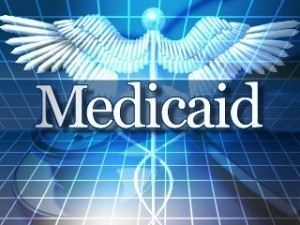The access to health care granted by the federal government’s Medicaid and CHIP programs is largely insufficient to meet the demands of the population it purports to serve, according to a new study published in the New England Journal of Medicine.
Researchers Joanna Bisgaier and Karin V. Rhodes of the University of Pennsylvania found being enrolled in either of the two health insurance programs, which were originally designed to help the neediest Americans, is of negligible value. Their study focused on specialty care clinics in Illinois.
“We completed 546 paired calls to 273 specialty clinics and found significant disparities in provider acceptance of Medicaid–CHIP versus private insurance across all tested specialties,” the study authors write. “Overall, 66% of Medicaid–CHIP callers (179 of 273) were denied an appointment as compared with 11% of privately insured callers (29 of 273) (relative risk, 6.2; 95% confidence interval [CI], 4.3 to 8.8; P<0.001). Among 89 clinics that accepted both insurance types, the average wait time for Medicaid–CHIP enrollees was 22 days longer than that for privately insured children."
Medicaid-CHIP Patients Rejected
The study also found children covered by Medicaid or CHIP face increased barriers to specialist care due to lack of resources within their families, including lower levels of income, education, language proficiency, and health literacy, and because decreasing numbers of specialists accept patients from the taxpayer-funded insurance programs.
“These findings signal a need to consider refining specialty care delivery processes to more efficiently use the specialist workforce,” write Bisgaier and Rhodes.
Kathryn Nix, a policy analyst in the Center for Health Policy Studies at the Heritage Foundation, noted the study confirms criticisms of the government program that have increased over the years.
“I think the study shows that Medicaid beneficiaries have less access to health care. One of the reasons is low provider reimbursement rates. States have their hands full with increasing caseloads,” said Nix. “Because Medicaid is a federal/state partnership, states are unable to make cuts or pursue innovation without permission from Washington, D.C. Their hands are tied.”
Obamacare Could Worsen Problem
Nix notes the long waiting times for those patients in the study fortunate enough to schedule an appointment. She argues this problem could be exacerbated by President Obama’s new health care regime.
“Under the new health care reform law, 25 million new Americans will be enrolled in Medicaid. It’s ironic because originally Medicaid was a program designed for the neediest Americans. Now it’s enrolling people who are up to 138 percent of the poverty line. This includes people who would be considered ‘middle class,’ including middle-class retirees,” Nix said.
“Once you add in these new enrollees, this is going to exacerbate the access problems Medicaid patients already confront,” she added.
Medicaid Already Overburdened
Dr. Roger Stark, a physician and health care policy analyst at the Washington Policy Center, says there are two major problems with Medicaid: “The program is bankrupt, and it can’t treat the patients it has now.”
“Access is limited, and the quality of care just isn’t that good. Except for a few exceptions, such as the ones treating people with HIV or AIDS, being enrolled in the system doesn’t do you much good,” Stark explained. “Medicaid represents the disconnect between politicians and the people on the ground. The politicians can stand up there and say, ‘We just enrolled 16-23 million people into the program that didn’t have health insurance.’ That’s their motivation. They get away with making these claims even though many patients won’t be able to access care.”
Stark says politicians are doubling down on a failing program even as doctors and providers are shifting away.
“Doctors and providers of health care look at the bottom line and say the reimbursement rates for providers are inadequate, the quality of care is dubious, and there is trouble accessing service,” he said. “All in all, the Medicaid program is terrible. But politicians keep pushing people into this system.”
‘Will Get Even Worse’
Devon Herrick, a senior fellow at the National Center for Policy Analysis, agrees below-market reimbursement fees are driving the access problem.
“The fees paid by state Medicaid programs average only about 59 percent of what private insurers pay. States with the most generous Medicaid eligibility often have the lowest fees. For instance, in New York a physician seeing a Medicaid patient would receive only about one-third of what a privately insured patient visit would pay. Some experts perceive this as a rationing technique,” says Herrick.
Herrick says the conclusions of the latest NEJM study are nothing new, simply bolstering the perceptions of health professionals.
“There have been numerous studies illustrating that people enrolled in Medicaid have a harder time obtaining a physician appointment than those with private coverage or even the uninsured,” Herrick explains. “And with 16 million or more people due to become eligible for Medicaid after the Affordable Care Act is implemented, access to care will get even worse.”
Nix agrees.
“You assume if you have Medicaid, you have insurance. But Medicaid beneficiaries are finding out that this insurance does not equal access to care,” Nix said.
Internet Info:
New England Journal of Medicine: “Auditing Access to Specialty Care for Children with Public Insurance”, by Joanna Bisgaier, M.S.W., and Karin V. Rhodes, M.D.





